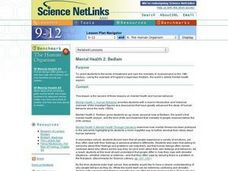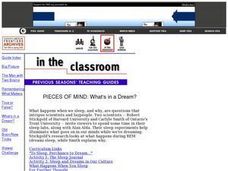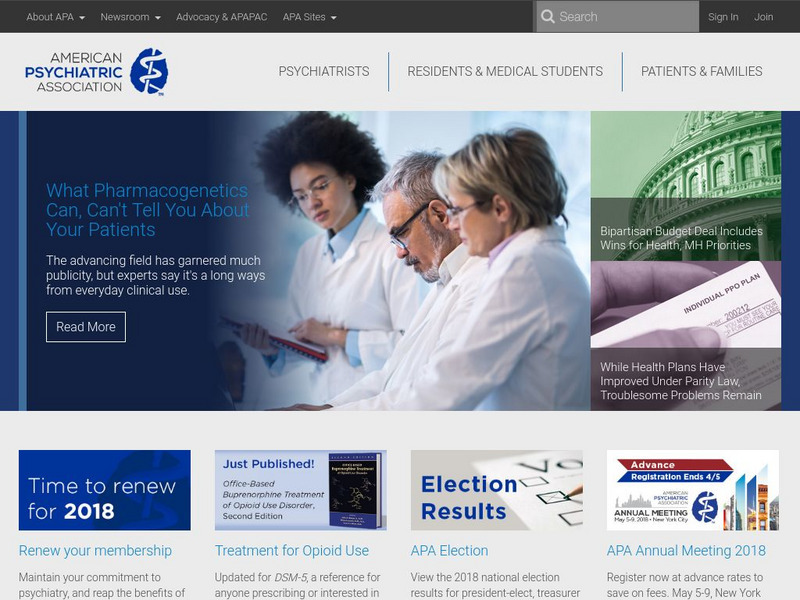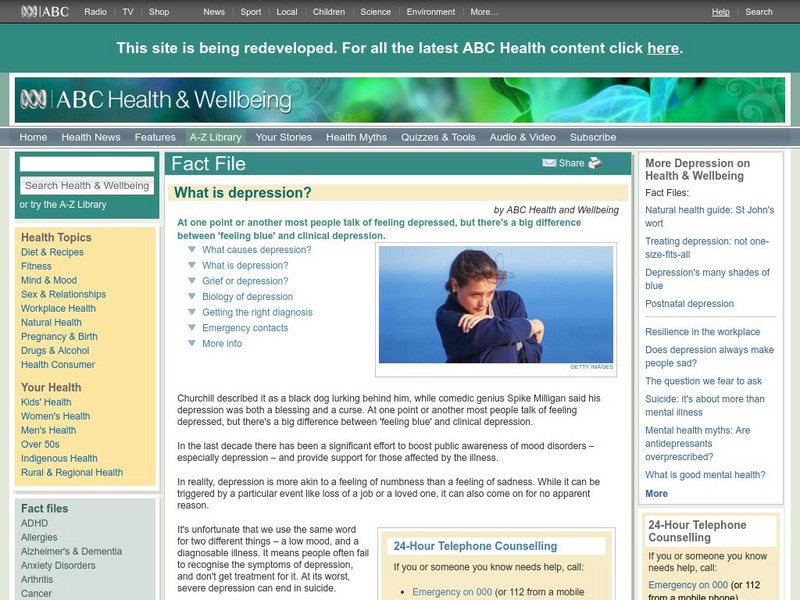Curated OER
The Mind-Body Connection
Second graders learn about the human body. In this biology lesson plan, 2nd graders will begin with the basics of understanding charts and graphs and progress into units that cover the body systems, and mental and emotional health....
Curated OER
The Human Organism
Students discuss human emotions and mental health. In this mental and emotional health instructional activity, students write a short story regarding the "think and share" choice. Students include emotion, the connection between...
Curated OER
Mental Health 3: Mental Health Through Literature
Students examine the impact and portrayal of mental illness in literature. They develop thier ideas about mental health through the arts in this the third lesson on mental health.
Curated OER
Mental Health 2: Bedlam
Students are oriented to the kinds of treatment and care the mentally ill received prior to the 19th century-using the example of England's legendary Bedlam, the world's oldest mental health asylum.
Scholastic
Recovery From Drug Addiction
Are there factors that put some individuals at a higher risk for drug addiction than others? Learn more about the risk factors that may make some people more susceptible to addiction, as well as protective factors that help prevent...
Curated OER
The Human Organism
Students identify their feelings and learn constructive ways of handling conflict. In this human mental health instructional activity, students identify their feelings, learn how to tell others about their feelings, and learn how to...
Curated OER
The Brain: Control Central
Students investigate the brain as the organ that regulates all of their physical, emotional, and cognitive responses. Some of the components of mental illness are examined inn this activity.
PBS
Stories of Painkiller Addiction: The Cycle of Addiction
Drug addiction, including prescription drug addiction, begins with a reason that's different for every user. High schoolers learn more about the reasons people begin abusing drugs with a set of videos and worksheets that discuss four...
Curated OER
You Can Stop!!
Students analyze smoking behavior based on peer pressure. In this health lesson, students read and complete worksheets on the internet concerning the behaviors associated with smoking. They summarize what they have learned by...
Just Health Action
What Makes a Community Healthy?
Young people have an opportunity to make it a beautiful day in their neighborhoods with an activity that asks them to identify what is healthy and unhealthy in their community and develop some ideas about what they can do to fix the...
Open Colleges
Your Brain Map: Strategies for Accelerated Learning
The brain is a complex organ with many different structures and functions. An interactive diagram allows learners to explore the different structures while pop-ups describe their functions. Secondary interactives show the structures of...
Curated OER
Alternative Medicine
In this science experiment worksheet, 6th graders answer 5 multiple choice questions about the Hahnemann control experiment and complete 3 graphic organizer that relate to the experiment.
Curated OER
Pieces of Mind: What's In A Dream?
Students explore the five stages of sleep. They view video footage of sleep labs and discuss the findings. Students conduct experiments by keeping a sleep journal to track their sleep and dream activity. They find examples of ways...
Other
American Psychiatric Association: Homepage
Home page of a professional organization of physicians specializing in psychiatry or the treatment of mental and emotional disorders.
How Stuff Works
How Stuff Works: Discovery Health: Interpreting Your Dreams
This Discovery site provides a nice concise overview on dreams and dream interpretation on easy-to-read pages. Content includes a brief overview of what dreams are and why they occur, the history of dreams and their effect, what certain...
Australian Broadcasting Corporation
Australian Broadcasting Corporation: Dark Side of the Mood: Dealing With Depression
This guide describes the causes of depression, its symptoms, and potential treatments (including "alternative" choices). It also debunks depression myths. Site provided by the Australian Broadcasting Corporation.















